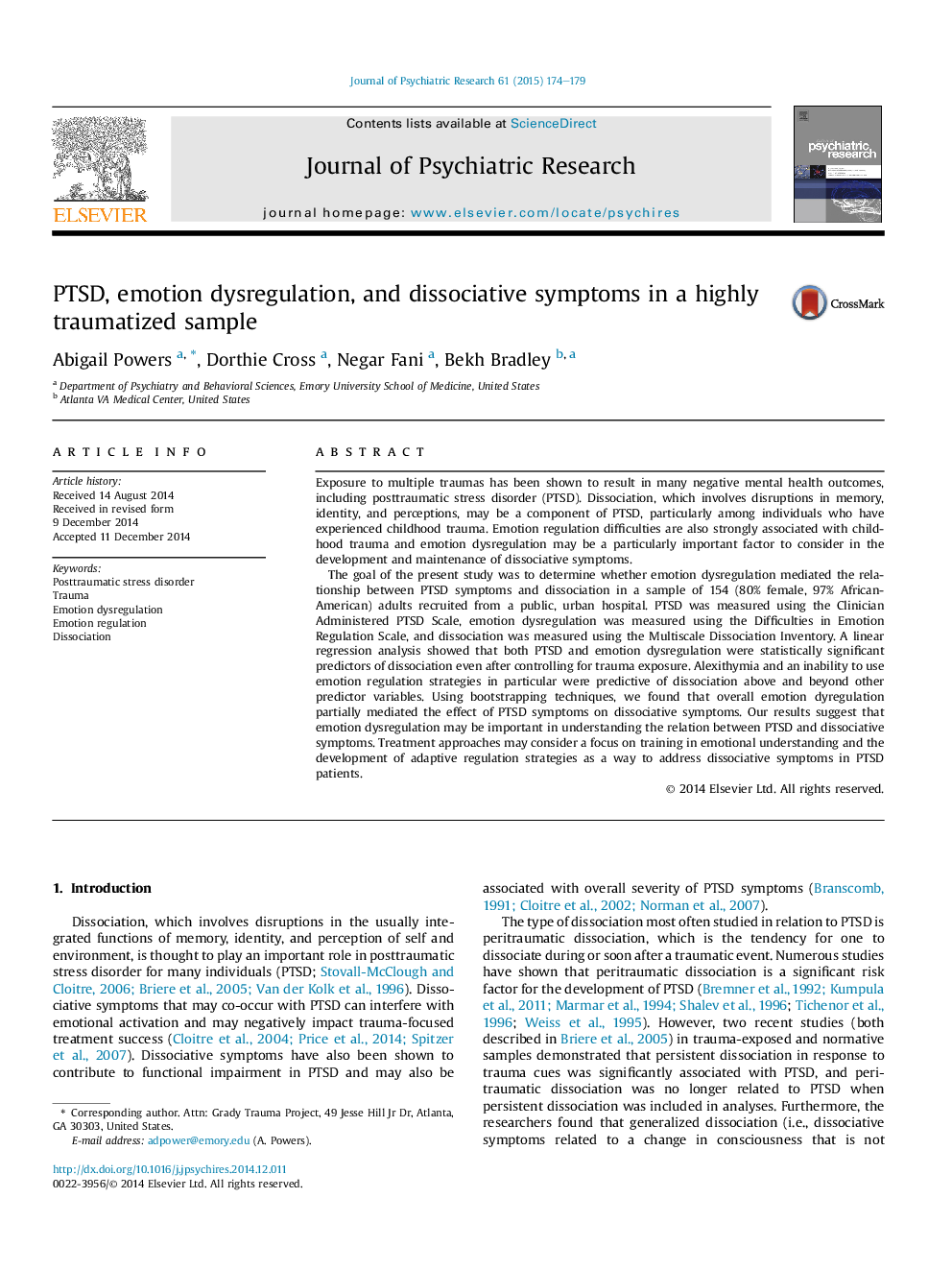| Article ID | Journal | Published Year | Pages | File Type |
|---|---|---|---|---|
| 6800857 | Journal of Psychiatric Research | 2015 | 6 Pages |
Abstract
The goal of the present study was to determine whether emotion dysregulation mediated the relationship between PTSD symptoms and dissociation in a sample of 154 (80% female, 97% African-American) adults recruited from a public, urban hospital. PTSD was measured using the Clinician Administered PTSD Scale, emotion dysregulation was measured using the Difficulties in Emotion Regulation Scale, and dissociation was measured using the Multiscale Dissociation Inventory. A linear regression analysis showed that both PTSD and emotion dysregulation were statistically significant predictors of dissociation even after controlling for trauma exposure. Alexithymia and an inability to use emotion regulation strategies in particular were predictive of dissociation above and beyond other predictor variables. Using bootstrapping techniques, we found that overall emotion dyregulation partially mediated the effect of PTSD symptoms on dissociative symptoms. Our results suggest that emotion dysregulation may be important in understanding the relation between PTSD and dissociative symptoms. Treatment approaches may consider a focus on training in emotional understanding and the development of adaptive regulation strategies as a way to address dissociative symptoms in PTSD patients.
Related Topics
Life Sciences
Neuroscience
Biological Psychiatry
Authors
Abigail Powers, Dorthie Cross, Negar Fani, Bekh Bradley,
